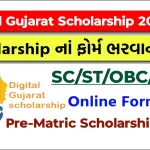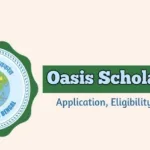General Studies
What is the capital of Australia?
Canberra is the capital of Australia.
Who wrote the book ‘War and Peace’?
Leo Tolstoy wrote ‘War and Peace.’
What is the main ingredient in traditional Japanese miso soup?
The main ingredient in traditional miso soup is soybean paste.
What year did the Berlin Wall fall?
The Berlin Wall fell in 1989.
Name the longest river in Asia.
The Yangtze River is the longest river in Asia.
What gas do plants absorb from the atmosphere for photosynthesis?
Plants absorb carbon dioxide from the atmosphere for photosynthesis.
Who was the first woman to win a Nobel Prize?
Marie Curie was the first woman to win a Nobel Prize.
What is the process of water cycle?
The water cycle involves evaporation, condensation, precipitation, and collection.
Name the largest desert in the world.
The Sahara Desert is the largest desert in the world.
Which vitamin is most commonly associated with citrus fruits?
Vitamin C is most commonly associated with citrus fruits.
What is the smallest bone in the human body?
The stapes, located in the ear, is the smallest bone in the human body.
What is the theory of relativity?
The theory of relativity, proposed by Albert Einstein, describes the laws of physics in the context of moving frames of reference.
Who was the first Emperor of China?
Qin Shi Huang was the first Emperor of China.
What are the primary colours of light?
The primary colours of light are red, green, and blue.
What is the capital of Egypt?
The capital of Egypt is Cairo.
How many planets are in our solar system?
There are eight planets in our solar system.
Who painted the Mona Lisa?
Leonardo da Vinci painted the Mona Lisa.
What element does ‘O’ represent on the periodic table?
‘O’ represents Oxygen on the periodic table.
Which country is known as the Land of the Rising Sun?
Japan is known as the Land of the Rising Sun.
What is the hardest natural substance on Earth?
Diamond is the hardest natural substance on Earth.
Current Affairs
Who is the Secretary-General of the United Nations as of 2025?
As of 2025, the Secretary-General of the United Nations is António Guterres.
Name the country that hosted the 2024 Olympic Games.
France hosted the 2024 Olympic Games in Paris.
Which country recently launched the ‘Green Visa’ to attract foreign professionals?
The UAE recently launched the ‘Green Visa’ to attract foreign professionals.
What major climate agreement was re-entered by the USA in 2021?
The USA re-entered the Paris Climate Agreement in 2021.
Which Asian country declared its carbon neutrality goal by 2060?
China declared its carbon neutrality goal by 2060.
Who won the Nobel Peace Prize in 2024?
Malala Yousafzai won the Nobel Peace Prize in 2024 for her efforts in promoting girls’ education.
What is the name of the rover that NASA landed on Mars in 2021?
The rover named Perseverance was landed on Mars by NASA in 2021.
Which country became the largest trading partner of the European Union in 2023?
China became the largest trading partner of the European Union in 2023.
Name the virus that caused a global pandemic starting in 2020.
The COVID-19 virus caused a global pandemic starting in 2020.
What international event did Tokyo host in 2021?
Tokyo hosted the Summer Olympics in 2021.
Indian Polity
What is the preamble of the Indian Constitution?
The preamble declares India to be a sovereign, socialist, secular, and democratic republic.
Who was the architect of the Indian Constitution?
Dr. B.R. Ambedkar is often called the architect of the Indian Constitution.
How many articles are there in the Indian Constitution initially?
Initially, the Indian Constitution contained 395 articles.
What is the tenure of the President of India?
The President of India serves for a term of five years.
Who appoints the Chief Justice of India?
The President of India appoints the Chief Justice of India.
What are the fundamental duties mentioned in the Indian Constitution?
The Constitution of India lists eleven fundamental duties for its citizens.
What is the maximum strength of the Lok Sabha as outlined by the Constitution?
The maximum strength of the Lok Sabha is 552 members.
Name the first female Prime Minister of India.
Indira Gandhi was the first female Prime Minister of India.
What is the winter capital of Jammu and Kashmir?
Jammu is the winter capital of Jammu and Kashmir.
Who is known as the Father of the Indian Space Program?
Dr. Vikram Sarabhai is known as the Father of the Indian Space Program.
This selection is a balanced mix across three subjects, designed to provide a broad range of topics typically relevant to the IAS scholarship test.
Essential Books for ALS IAS Scholarship Test Preparation
-
“Indian Polity” by M. Laxmikanth (McGraw Hill Education)
- Covers the constitution, political system, Panchayati Raj, public policy, rights issues etc. Ideal for understanding the framework of Indian governance.
-
“A Brief History of Modern India” by Rajiv Ahir (Spectrum Books)
- Offers a concise overview of the modern history of India, focusing on freedom struggle, social reforms, and key movements.
-
“Indian Economy” by Ramesh Singh (McGraw Hill Education)
- Detailed analysis of the structure and growth of the Indian economy, including recent developments and governmental policies.
-
“Geography of India” by Majid Husain (McGraw Hill Education)
- Comprehensive coverage of physical, economic, and social geography of India, crucial for environmental and geographical insights in the IAS exams.
-
“Science and Technology in India” by Ashok Singh (TMH)
- Explains the advancements and developments in science and technology within the Indian context, suitable for science-related questions in the IAS test.
-
“Oxford School Atlas” by Oxford University Press
- Provides detailed maps and geographical data essential for any geography-related questions in the test.
-
“Indian Art and Culture” by Nitin Singhania (McGraw Hill Education)
- Focuses on the cultural heritage of India, covering art forms, festivals, and architectures of historical significance.
-
“Challenges to Internal Security of India” by Ashok Kumar and Vipul Anekant (McGraw Hill Education)
- Discusses internal security challenges, insurgency, terrorism, and related policies.
-
“Social Problems in India” by Ram Ahuja (Rawat Publications)
- Analyzes major social issues like poverty, unemployment, and societal changes affecting India, critical for understanding the social fabric.
-
“Ethics, Integrity and Aptitude” by Subba Rao and P.N. Roy Chowdhury (Access Publishing)
- Covers theories of ethics and their application in governance and public administration, crucial for the ethics paper in IAS exams.
-
“India’s Struggle for Independence” by Bipan Chandra (Penguin Random House)
- Provides an in-depth look at the political and economic factors leading to India’s independence.
-
“Indian Environmental Law: Key Concepts and Principles” by Shyam Divan and Armin Rosencranz (Oxford University Press)
- Offers insights into environmental policies, laws, and the regulatory framework in India.
-
“Public Institutions in India: Performance and Design” by Devesh Kapur and Pratap Bhanu Mehta (Oxford University Press)
- Analyzes the performance and structure of key public institutions in India, giving insights into their operational effectiveness.
-
“The Indian Economy” by Sanjiv Verma (Unique Publishers)
- Simplifies the economic concepts and policies pertaining to the Indian economic scenario.
-
“Governance in India” by M. Laxmikanth (McGraw Hill Education)
- Explores the concepts and dynamics of governance in India, including significant policies and reforms.
-
“The Wonder That Was India” by A.L. Basham (Picador India)
- Focuses on ancient India’s cultural history, religion, and philosophy, providing a background for historical context questions.
-
“Contemporary World Politics” by Ncert (NCERT Publications)
- Introduces the political theories, practices, and global policies that influence contemporary world politics.
-
“From Plassey to Partition and After” by Sekhar Bandyopadhyay (Orient Blackswan)
- Narrates the history of India from the battle of Plassey through to partition, offering a critical historical analysis useful for deep understanding of India’s past.
-
“Environment and Ecology: Biodiversity, Climate Change and Disaster Management” by Majid Husain (Access Publishing)
- Discusses environmental issues, ecological balance, and the impact of climate change and disasters on development.
-
“Lexicon for Ethics, Integrity, and Aptitude” (Chronicle Books)
- Provides definitions and explanations of terms and ideas related to ethics, with applications in civil services scenarios.
ALS IAS Scholarship Test Question Paper: A Gateway to Excellence in Civil Services Preparation
Preparing for the ALS IAS Scholarship Test can be a daunting task for aspiring civil servants. This test not only evaluates the candidates’ knowledge and understanding of various subjects pertinent to the civil services examination but also serves as a stepping stone to achieve scholarships that can immensely help in funding their IAS coaching needs. Understanding the structure and the type of questions asked in this examination is crucial for every aspirant aiming to maximize their performance.
The ALS IAS Scholarship Test question papers are meticulously designed to mirror the pattern and the rigor of the actual UPSC examination. This helps candidates in getting a real-time experience of the types of questions they might face. These question papers cover a broad range of topics, from current affairs and Indian polity to history, geography, economics, and environmental issues. The test aims to assess not just the factual knowledge of the candidates but also their analytical skills and ability to apply the concepts in solving complex problems.
To excel in the ALS IAS Scholarship Test, it is advisable to start preparation early. Candidates should focus on understanding the core subjects thoroughly. One effective strategy is to integrate reading newspapers and magazines with their study schedule to stay updated with current affairs, a crucial component of the test. Regular revision and taking mock tests will also aid in identifying weak areas and improve speed and accuracy.
Moreover, the question papers often include a mix of objective and descriptive questions. Aspirants should practice writing concise and impactful essays and answers, which are integral in scoring well in the descriptive sections. Time management is another vital skill that needs to be honed during preparation as it can significantly affect the test outcomes.
The ALS IAS Scholarship Test also places a significant emphasis on the candidates’ ability to think critically. Questions that involve case studies or situation analysis are common. These are designed to test the decision-making abilities and ethical reasoning of the aspirants, reflecting the real-world challenges faced by civil servants.
Furthermore, it’s essential for aspirants to use high-quality study materials and engage in peer discussions to broaden their understanding and perspectives. Many successful candidates recommend joining study groups and participating in discussion forums to facilitate knowledge exchange and stay motivated throughout the preparation journey.
In summary, the ALS IAS Scholarship Test is more than just an examination. It is an opportunity for IAS aspirants to gauge their preparation levels, get accustomed to the UPSC exam pattern, and secure financial aid for their coaching. A strategic approach to preparation, coupled with diligent study and consistent practice, can greatly enhance one’s chances of excelling in this test.
FAQ for ALS IAS Scholarship Test Question Paper
1. What is the ALS IAS Scholarship Test?
The ALS IAS Scholarship Test is designed to assess the aptitude and knowledge of IAS aspirants and provide scholarships for those who score well.
2. What subjects are covered in the ALS IAS Scholarship Test question paper?
The test covers a variety of subjects including Indian Polity, Current Affairs, History, Geography, Economics, and Environmental Studies.
3. How can I prepare effectively for the ALS IAS Scholarship Test?
Effective preparation involves thorough study of core subjects, regular updates on current affairs, practicing previous question papers, and taking mock tests.
4. Are there descriptive questions in the ALS IAS Scholarship Test?
Yes, the test includes both objective and descriptive questions to evaluate the comprehensive ability of the candidates.
5. How important is time management in the ALS IAS Scholarship Test?
Time management is crucial as it helps in completing the test within the given time and allows for reviewing answers to maximize accuracy.
6. What type of analytical questions are asked in the test?
The test includes case studies and situation analysis to assess the decision-making and ethical reasoning of the aspirants.
7. Can securing a scholarship through the ALS IAS Test affect my further preparations?
Securing a scholarship can significantly aid in funding your IAS coaching, which can provide better resources and guidance for further preparations.
These FAQs aim to clarify common queries about the ALS IAS Scholarship Test, helping aspirants to better prepare and approach the test with confidence.
Latest Posts
- Step-by-step guide to download and apply for jee mains admit card 202
- Comprehensive 2025 government holidays and recruitment details for job seekers
- JEE Mains Admit Card 2025: Your Step-by-Step Guide to Downloading the Hall Ticket
- Everything You Need to Know About 2025 Government Holidays Recruitment
- Comprehensive Guide to rrb d group recruitment 2025 – Eligibility, Vacancies, and Application
- Detailed guide to nps trust recruitment 2025 vacancies, eligibility and apply process
- Comprehensive guide to hpcl recruitment 2025 notification, vacancies, and application process
- ignou bed admission 2025 complete recruitment guide with eligibility and process
- Comprehensive Guide to Indian Army Agniveer Recruitment 2025 Notification and Jobs
- Everything You Must Know About CBSE Board Exams 2025 Changes & New Rules






![LICHFL Vidyadhan Scholarship [ Get 20,000 Scholarship ] lichfl vidyadhan scholarship](https://india.yuvajobs.com/news/wp-content/uploads/2024/07/LIC-Golden-Jubilee-Scholarship-1-150x150.webp)